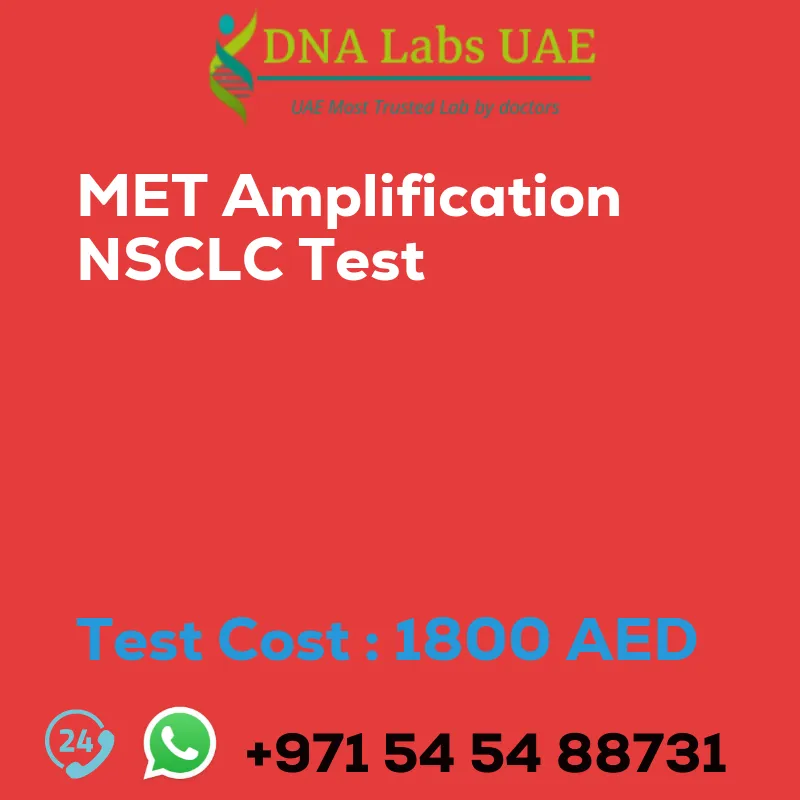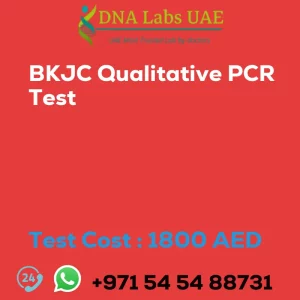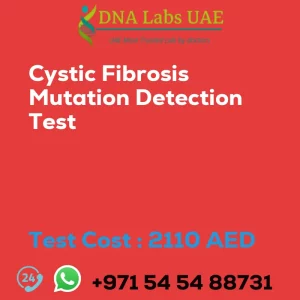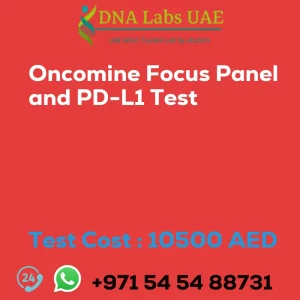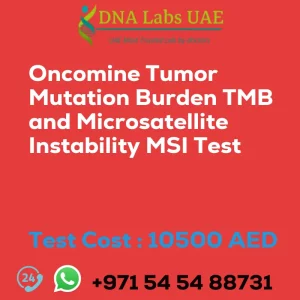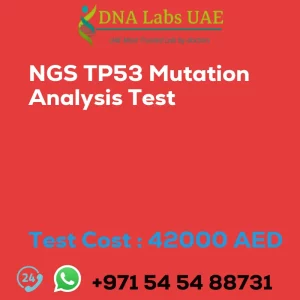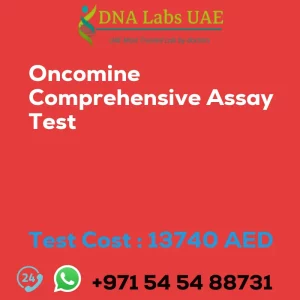MET Amplification NSCLC Test
Welcome to DNA Labs UAE, where we offer the MET Amplification NSCLC Test at an affordable cost of AED 1800.0. This test is essential for diagnosing non-small cell lung cancer (NSCLC) patients with MET amplification.
Test Details
MET amplification is a genetic alteration that occurs in NSCLC. It involves the overexpression or increased number of copies of the MET gene, which encodes the MET receptor tyrosine kinase. This alteration leads to the overactivation of the MET signaling pathway, promoting cell growth, survival, invasion, and metastasis.
The MET pathway plays a crucial role in various cellular processes, including cell proliferation, migration, and angiogenesis. When MET amplification occurs in NSCLC, it can drive tumor growth and resistance to targeted therapies, such as EGFR inhibitors.
Our MET Amplification NSCLC Test utilizes advanced techniques, including fluorescence in situ hybridization (FISH), immunohistochemistry (IHC), and next-generation sequencing (NGS), to detect MET amplification in NSCLC patients. These methods help identify individuals who may benefit from MET-targeted therapies.
Test Components
- Paraffin embedded tissue blocks
Test Price
The cost of the MET Amplification NSCLC Test is AED 1800.0.
Sample Condition
We require tumor tissue samples for conducting this test.
Report Delivery
Once the test is completed, the report will be delivered within 7-8 days.
Test Method
The MET Amplification NSCLC Test utilizes the FISH method for accurate detection.
Test Type
This test falls under the category of genetics.
Doctor
Our experienced oncologists will oversee the MET Amplification NSCLC Test.
Test Department
This test is conducted in our specialized Test Department.
Pre Test Information
A doctor’s prescription is required for the MET Amplification NSCLC Test. However, please note that the prescription is not applicable for surgery and pregnancy cases or individuals planning to travel abroad.
At DNA Labs UAE, we understand the importance of personalized therapy. MET amplification is an important biomarker in NSCLC that can guide treatment decisions and help improve patient outcomes. Several MET inhibitors are currently being studied in clinical trials for NSCLC patients with MET amplification. These inhibitors can block the activity of the MET receptor and inhibit downstream signaling pathways, leading to tumor regression.
Don’t hesitate to contact us for more information or to schedule an appointment for the MET Amplification NSCLC Test. Early detection and personalized therapy can make a significant difference in the lives of NSCLC patients.
| Test Name | MET Amplification NSCLC Test |
|---|---|
| Components | Paraffin embedded tissue blocks |
| Price | 1800.0 AED |
| Sample Condition | Tumor tissue |
| Report Delivery | 7-8 days |
| Method | FISH |
| Test type | Genetics |
| Doctor | Oncology |
| Test Department: | |
| Pre Test Information | MET Amplification (NSCLC) can be done with a Doctors prescription. Prescription is not applicable for surgery and pregnancy cases or people planing to travel abroad. |
| Test Details |
MET amplification is a genetic alteration that occurs in non-small cell lung cancer (NSCLC). It involves the overexpression or increased number of copies of the MET gene, which encodes the MET receptor tyrosine kinase. MET amplification leads to the overactivation of the MET signaling pathway, promoting cell growth, survival, invasion, and metastasis. The MET pathway plays a crucial role in various cellular processes, including cell proliferation, migration, and angiogenesis. When MET amplification occurs in NSCLC, it can drive tumor growth and resistance to targeted therapies, such as EGFR inhibitors. Detection of MET amplification in NSCLC can be done through various methods, including fluorescence in situ hybridization (FISH), immunohistochemistry (IHC), and next-generation sequencing (NGS). These techniques help identify patients who may benefit from MET-targeted therapies. Several MET inhibitors have been developed and are currently being studied in clinical trials for NSCLC patients with MET amplification. These inhibitors can block the activity of the MET receptor and inhibit downstream signaling pathways, leading to tumor regression and improved patient outcomes. Overall, MET amplification is an important biomarker in NSCLC that can guide treatment decisions and help personalize therapy for patients with this specific genetic alteration. |

